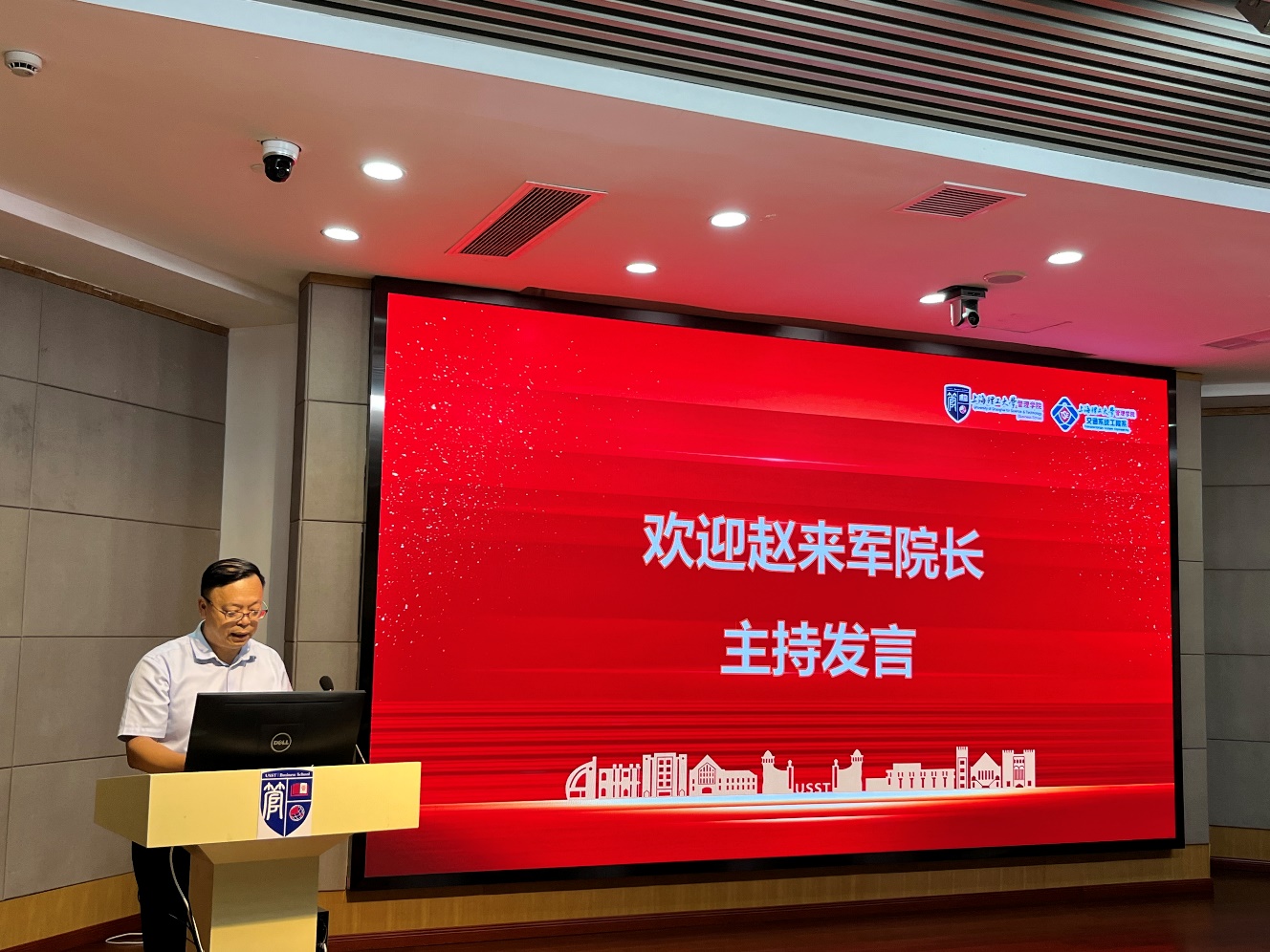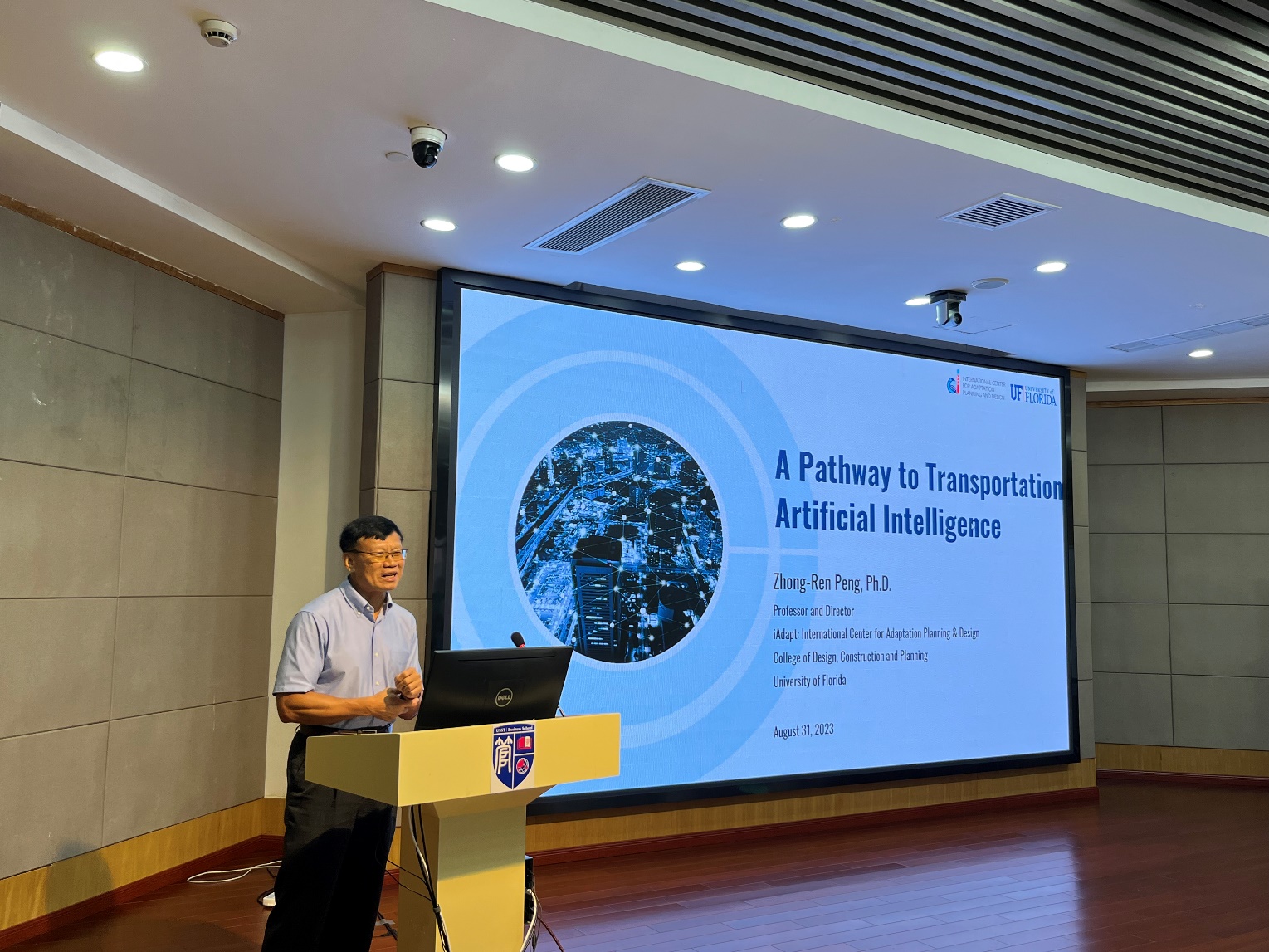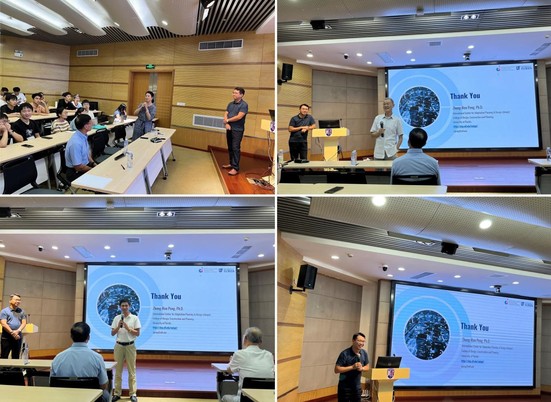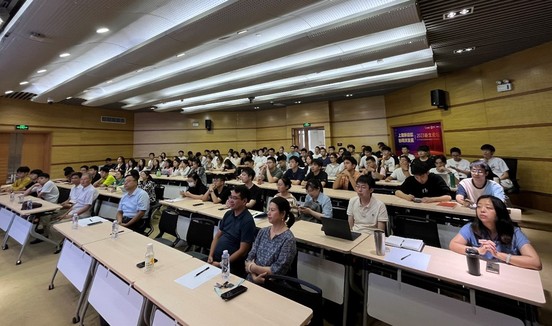On August 31st, Business School held the 66th Shanghai Hujiang Economic and Management Forum. Peng Zhongren, a tenured professor in the Department of Urban and Regional Planning, University of Florida (UF), was invited to give a lecture titled The Pathway of Transportation Al. This event was presided over by Prof. Zhao Laijun, dean of the Business School. Prof. Fan Bingquan, founder of the Transportation Engineering discipline of USST, Prof. Han Yin, principal investigator of the Transportation Engineering discipline, Liu Weiwei, department director, Yao Jiao, Party branch secretary, Wang Jiawen, deputy director of the department, as well as faculty members and students from the school, attended the lecture.
Zhao Laijun welcomed Peng Zhongren's arrival, shared his experience of working and cooperating with Prof. Peng, and introduced Prof. Peng’s main research areas and academic achievements.

Zhao Laijun presided over the lecture
Peng Zhongren discussed how AI is rapidly reshaping key transportation technology. He talked about the impact of AI on urban and transportation research and the response measures deficiency in unknown areas. He first introduced the research on AI-empowered transportation, especially the issues in the transportation planning process. Then, he combined many examples and proposed a transportation AI classification system that includes four stages: Al Assisted, Al Autonomized, AI Automated, and Al Autonomized. He analyzed the challenges and shortcomings of AI in transportation research and proposed several suggestions for cultivating transportation students based on AI development.

Peng Zhongren delivered a lecture
After the lecture, Peng Zhongren had in-depth communication and discussion with the attending faculty and students, which was presided over by Liu Weiwei. Firstly, Dong Jieshuang combined her study tour experience with Peng Zhongren and expressed her admiration for Prof. Peng’s enthusiastic attitude towards scientific research and advanced scientific thinking. She also talked about many issues related to the selection of research topics. Afterwards, Fan Bingquan shared his academic experience with Prof. Peng and encouraged everyone to build a strong foundation and enhance their cognitive methods. We should not only be able to solve equations, he said, but also be able to write equations. He also discussed the development of AI in the transportation field. Finally, Han Yin shared his views on the development of autonomous driving technology based on his research experience and actual data, then encouraged faculty and students to explore this cutting-edge field.

Exchanges and discussions

The lecture site
The Hujiang Economic and Management Forum has expanded the academic perspectives of faculty and students. It has influenced their research methodology and offered them clear insights on how to approach transportation research with AI. Additionally, it has stimulated ideas on how to utilize AI effectively to overcome challenges in the transportation field. This forum has a vital role in disciplinary construction and degree development.
Introduction to Lecture Guests
Peng Zhongren is a tenured professor in the Department of Urban and Regional Planning, UF, director of iAdapt, top 1% scientist in Google's academic planning field, non-resident senior fellow at the GeoTech Center of the Atlantic Council, and a member of the Transportation Geographic Information Science Committee and the Public Transport Planning and Management Committee of the Transportation Research Council of the American Academy of Sciences, senior advisor of the National Natural Science Foundation of the United States and editorial board member of the American Journal of Intelligent Transportation. His main research areas are transportation planning and management, climate change adaptation planning, urban planning, and AI. Currently, Prof. Zhong has published 178 papers, including 56 highly cited papers and 2 monographs.
Translated by: Bai Yuting
Reviewed by: Nie Rui


